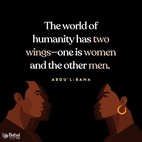The views expressed in our content reflect individual perspectives and do not represent the authoritative views of the Baha'i Faith.
Remember the old joke that says those who die with the most toys win? Some people may take the joke seriously, actually thinking that amassing material goods is the purpose of life.
In fact, many people do judge themselves based on material criteria. Have you ever talked about these issues with family and friends? If not, I recommend it.
RELATED: If Money Can’t Buy Happiness, What Does?
My friends and I have a history of frankly discussing how we feel about the life choices we’ve made. Often one’s choices pertain to values – refusing to do something dishonest, not taking a promotion because an ailing relative needs help, leaving a company with a toxic corporate culture, changing course to follow a true interest. In my conversations with friends, we often refer to the life choices we’ve made prompted by spiritual values. The subject of death inevitably accompanies these conversations, as we wonder about how life in the material world prepares our souls for a spiritual afterlife.
What Data Do We Use to Make Our Decisions?
Although everyone likes to think they reason rationally and intellectually through each of their choices, most people actually collect much data from feelings, whether sensory, emotional or spiritual. In fact, it’s been shown that damage to the brain’s prefrontal cortex hampers one’s ability to feel emotions, which leads to an inability to evaluate and make decisions.
Of course, we also collect data by considering multiple cases and drawing conclusions by inductive reasoning. As Muhammad counseled in the Qur’an, “Those who listen to all statements, and then follow the best of it – these are the ones whom God has guided, and these are the ones possessed of minds.” Undoubtedly led by such concepts, his first followers made great strides in scientific thinking and innovation, which they brought with them to Europe in the Middle Ages.
Baha’u’llah, the prophet and founder of the Baha’i Faith, also taught us to use reason – by, for example, showing how to decipher the symbols, metaphors, and analogies the divine messengers have used for describing spiritual concepts. To illustrate the importance of such a perceptive ability, his son and successor Abdu’l-Baha said: “Unless we perceive reality, we cannot understand the meanings of the Holy Books, for these meanings are symbolical and spiritual …”
Many of us, though, ignore the existence of spiritual data and turn to fanciful thinking about an afterlife, such as that the departed will live on as memories in the hearts of those who loved them, that the brain contains our ultimate reality so we might live forever if we have it frozen, or that memories can be saved electronically. Such notions imply that even thinkers grounded in materialism question how death can possibly spell the end.
The True Self is Spirit
Looking deeply into the Baha’i writings, I’ve understood that our true self is spirit. That life force emanates from God, like the sun’s rays that bring heat and light to Earth, but which are not the sun itself. The spirit which emanates from God remains, like the sun, outside the immediate realm of our creation.
The Baha’i teachings advise everyone to see with their own eyes and hear with their own ears – to use the inner eyes and ears of our soul and spirit. This intuitive insight – this spiritual data we can all perceive – makes use of the light of the Holy Spirit to illumine what is true.
We’re all born into an earthly plane full of sensual attractions and temptations which we can enjoy and learn from, but the spiritual teachings of all religions say we shouldn’t allow these things to dominate us. They tell us, instead, that the soul is like a medium recording the spirit’s decisions about what to identify with, whether we choose to devote our lives to sensual pleasures or to being of service. Of course, we can do both, but we won’t profit by not following the spiritual guidance of God’s messengers. So, since our spirit has the capacity to choose, our souls can become like a reference library full of false information. The extent to which our spirit – our true self – chooses to detach from the material world and be faithful to God, determines how successful we will be in preparing for the next world. We grow spiritually through conscious effort and education, so our capacity for spiritual growth depends on our sincerity and effort.
Remember that guy with the most toys winning? The reality is that we get sick, we lose everything, we grieve, and some of us are beset with constant worries and never find peace in this world. The material goods we amass, in the end, count for nothing. As Abdu’l-Baha told an audience in Denver in 1912, only the spiritual fruits of life can sustain us:
If he is bereft of divine bounties, spiritual susceptibilities and heavenly glad tidings, the life of man in this world has not yielded any worthy fruit. While possessing physical life, he should lay hold of the life spiritual, and together with bodily comforts and happiness, he should enjoy divine pleasures and content.
In other words, we must evolve and progress spiritually day by day, for life is continuous.
RELATED: Can Dreams Prove the Existence of the Next World?
Baha’u’llah warned us not to blindly imitate others. But in one area of life we do so conscientiously – following the example of the prophets of God, who reflect all of the Creator’s lofty spiritual attributes. We can learn from their writings and the eyewitness stories of their lives, and try our best to display the same attributes of loving-kindness, generosity, patience, and fair-mindedness. In that way, we experience what it feels like to be around people who have learned such positive attributes, versus those who hate, lie to, and abuse us.
So, my friends and I reflect on our choices – our behaviors, accomplishments and failures – and see at each juncture those who helped us grow, and those who brought us misery and regret. Looking back, I like to be able to say I didn’t intentionally hurt anyone, always tried to do my best, and sought the truth. Since we’re still alive, my friends and I agree, we still have time to work on acquiring more spiritual attributes and making better choices.

















Comments
Sign in or create an account
Continue with Googleor